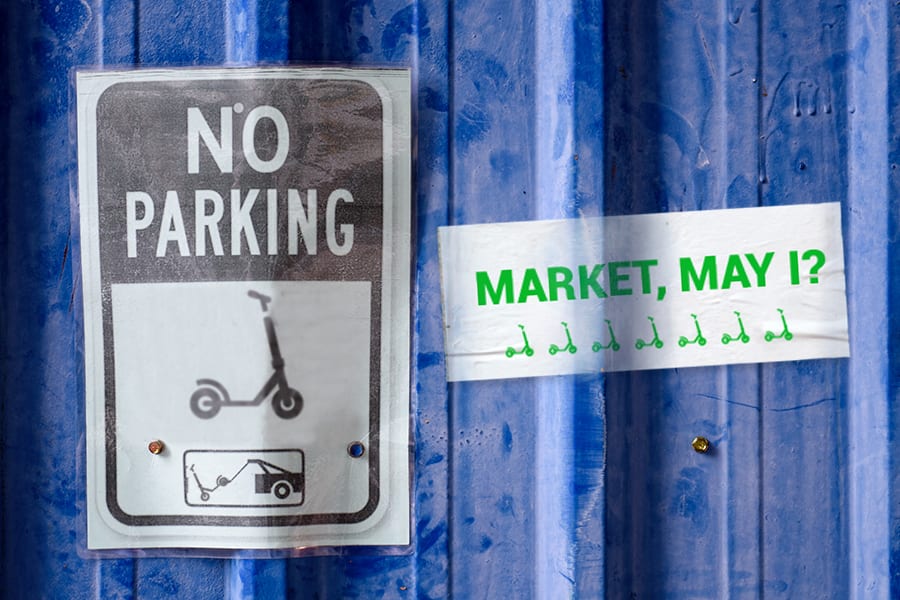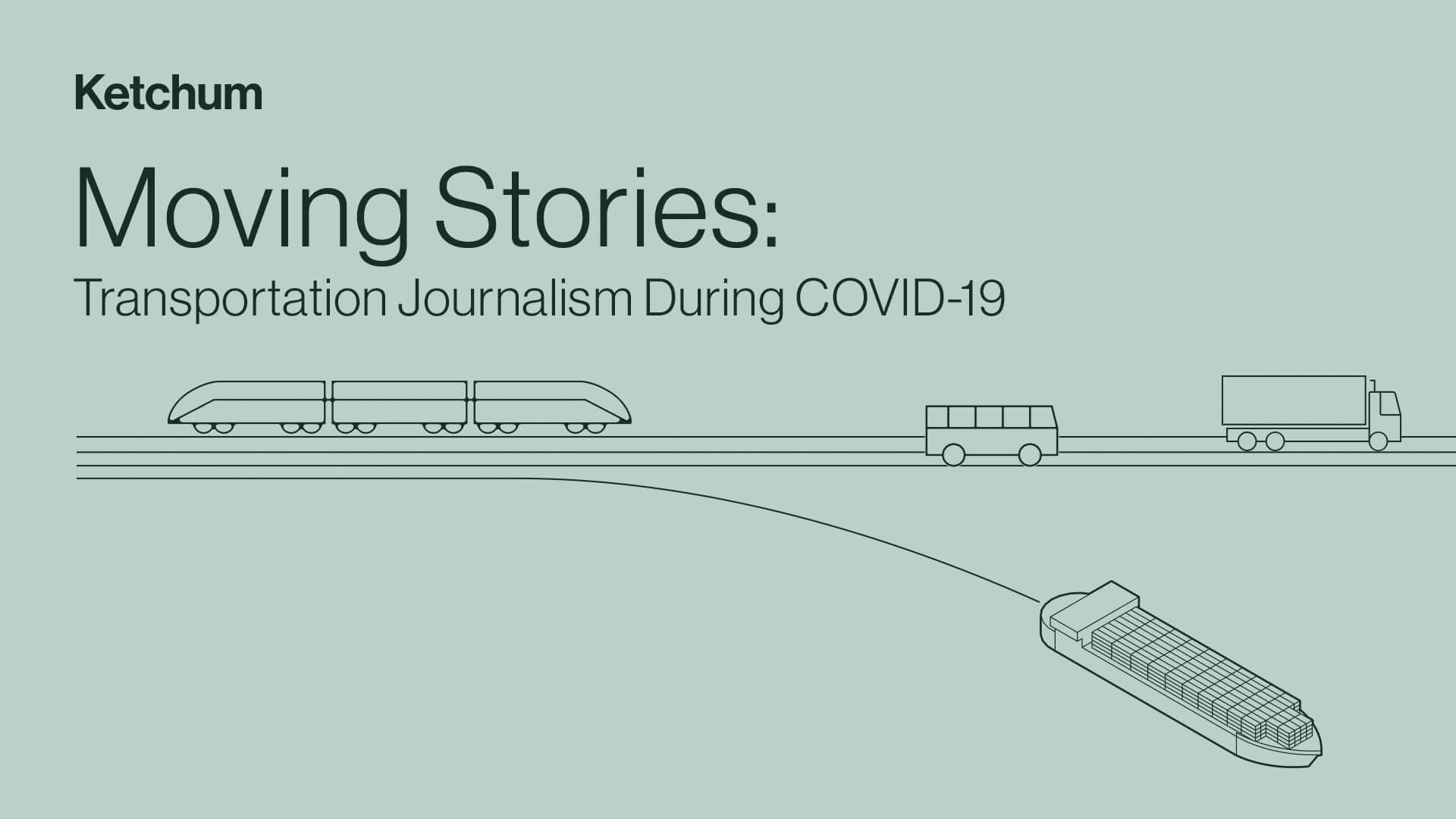Are you familiar with the childhood game Mother, May I? Children stand in a line at one end of a field and can’t take a step forward unless they preface their request with “Mother, may I?”. If they forget to ask, they’re out. Today, dockless bikes and scooters popping up on city streets everywhere are creating a risky business version of this game – a kind of Market, May I?

It’s risky because dockless bikes and scooters are clashing with cities and lawmakers in nearly every new market they enter. When we launched Ketchum Transportation earlier this year, these app-based, pay-as-you-go services were high on our list of trends shaping the future. They’re a prime example of disruption that thrives on unmet need. A fleet of disruptive mobility companies are stepping in to solve a common problem facing a population that is increasingly urban and unfettered by private car ownership – mass transit that stops short of people’s final destination. Short-range electric scooters and bikes are very appealing for covering that last mile.
But for every new rider zipping happily along, there are many other citizens watching with disbelief or even outrage as devices are left haphazardly in communities and basic safety rules are disregarded.
What’s happening is a result of misjudging the will of the people – or failing to earn what Ketchum calls reputation by permission. Companies no longer have 100 percent ownership of their own reputation; today it’s co-created with key stakeholders and it must be earned rather than assumed.
In the case of electric scooters and dockless bikes, the popular perception seems to be, ‘They’re cool but still, somebody must do something!’
And somebody is. City by city, new codes are being enacted daily. Since it’s impossible for mobility disruptors to change business models to meet an infinite number of municipal ordinances, many opt out of markets completely (see: Ofo, Mobike, Bird).
What these companies need to do is win back public permission. Let’s start with safety and etiquette, the primary concerns that municipalities express when regulating dockless bikes and scooters.
Right now, the biggest gap is rider education. How does anyone learn how to ride these things? I’ve seen thoughtful lists and tips on company websites. But this misses out on a chance to offer real training and, by extension, create another marketing opportunity. A few brands could team up on a coordinated effort to enter a new market, creating visibility and goodwill for the dockless mobility sector as a whole. Costs could be offset with local sponsors – perhaps a helmet company? An insurance provider? And companies should make entering a new market a celebration, instead a covert nighttime drop-off of scooters or bikes on every street corner.
Another part of a platform to earn market and reputational permission could be tying to broader mobility initiatives. Major auto shows across the country are reinventing themselves by building more experiential opportunities (e.g., the Detroit Auto Show). What better venue to align with?
And how about borrowing equity from brands with a long history of safety advocacy, like AAA. This industry needs an organizing entity that can promote safety and rider etiquette to millions of consumers over time, and those entities already exist.
The National Association of City Transportation Officials took a first step in the right direction in July when they released guidelines for the regulation and management of shared active transportation. They outlined some basics that all dockless mobility companies can use as they plan for the future.
But disruptors and emerging technologies don’t usually wait for terms to be dictated – they do the dictating. There needs to be a middle ground. Finding ways to be more integrated into our current transportation system should be the next evolution in the maturation of these dockless electric last-mile solutions. If the companies behind them don’t start systematically carrying out communications and advocacy programs that ask “market, may I?” there’s a risk that those markets will just say no.
Any questions? Feel free to reach out and connect with me.



